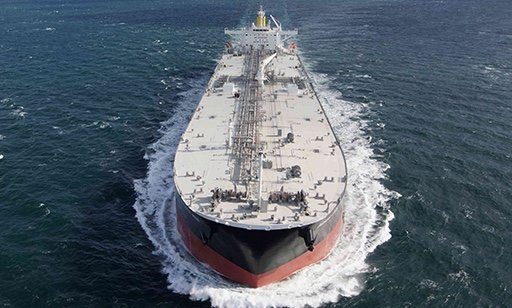Tanker analysts turn bearish

Tanker analysts are beginning to turn bearish on prospects for a sector that has been surging for most of the year.
Oslo-based Cleaves Securities, crowned last November as the world’s top shipping analyst according to bank rankings carried by financial newswire Bloomberg, yesterday downgraded the oil tanker shipping segment from buy to hold in light of current share prices and a deteriorating outlook for the coming couple of years.
Cleaves reacted to the OPEC+ news over the weekend of a 10m barrel a day production cut around the world earmarked for May and June, admitting the decision by oil producers is a strong short-term support from the contango in the oil prices futures curve. However, slumping demand for petroleum brought about by the coronavirus will see tanker earnings fall, Cleaves suggested.
Cleaves now expects petroleum demand to average 16m barrels per day lower versus December 2019 levels for the remainder of the year.
“[W]e expect Oil Tanker spot rates to plummet in concert with asset and share prices. Our tentative VLCC spot rate forecast for 2H20E is now only $15k/d, which is extremely low given 4Q represents high-season,” Cleaves stated in a tanker note yesterday.
Moreover, as oil demand picks up and the oil price contango dissipates, the huge inventory build currently ongoing will likely be reversed, Cleaves predicted, having a profound negative impact on demand for tankers with destocking to start from July 2021, significantly undermining the usually strong tanker winter market for next year as well.
The positive takeaway from Cleaves’s updated forecast is that the orderbook versus fleet is currently at its lowest level since 1996, and contracting is predicted to stay depressed in the coming years amidst a weak earnings environment. Scrapping will also likely stay elevated. Cleaves said it sees the potential for a tanker super-cycle developing from mid-2022 and into 2023 as tanker demand recovers and fleet supply stays close to zero.
Also questioning market fundamentals for the volatile tanker sector yesterday was George Lazaridis, head of research and valuations at Greece’s Allied Shipbroking who wrote in a weekly report of “troubles brewing under the surface” for the sector.
The drop in oil consumption brought about by all the coronavirus-linked lockdowns around the world could end up leaving a “much bigger scar” than what most are anticipating, Lazaridis warned.
“Once the measures are taken back and consumers return back to ‘normality’, their spending patterns may well have forever changed. More people may be tasked to work remotely from here on out, companies may seek to shorten supply chains and look for greater reliance on local resources so as to avert future disruptions, while international travel could be curbed as people come to terms with alternatives and look to cut back on what may from now on be seen as unnecessary. The market landscape for crude oil may well have shifted, while at the same time the wind fall for tankers may now be cut shorter than expected,” Lazaridis wrote in the opening page to Allied’s weekly report.
Speaking at a BIMCO shipping markets webinar today, Peter Sand, the association’s chief shipping analyst, said “gravity” was about to set in for tanker freight rates.
“We have a window left for tankers to operate at above normal levels, but it will close at the end of this month,” Sand said.
Striking a more bullish tone was the tanker analyst team from London broking house Braemar ACM who conceded that while tanker demand might soften in the coming days, rates and earnings are likely to be cushioned by a tight tonnage list because of the substantial MEG/West program in March and April which has helped lift the volume of crude in transit 10% above year-ago levels and will keep vessels tied-up on long-haul voyages till late May / early June. Moreover, Braemar ACM noted China’s refinery demand is improving and a strategic petroleum reserve stock build in India and China could soak up huge volumes of crude.
